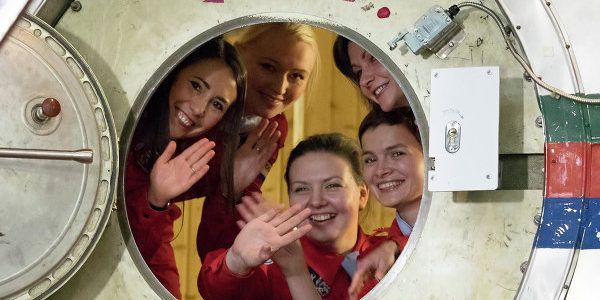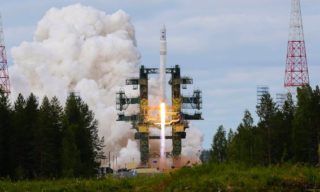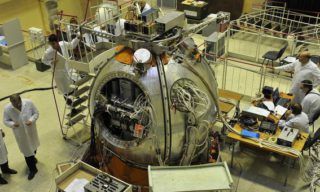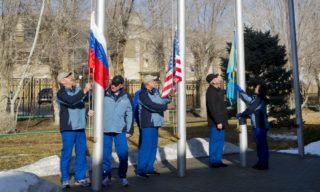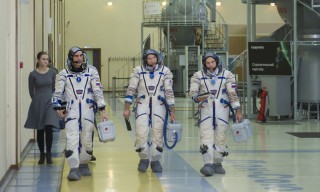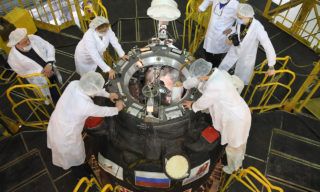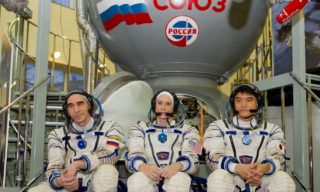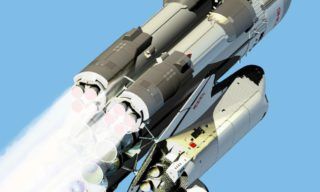On Wednesday Russian Institute for Biomedical Problems started implementing unique Moon-2015 project. According to this project 6 women will spend 8 days in closed space performing more than 30 scientific experiments.
According to Roscosmos Head Igor Komarov real flight to the Moon will be performed not earlier than in 10 years but this experiment is of great importance for future explorations. 6 young women were selected to take part in the experiment, they are biologists, doctors, scientists and psychologists.
The main tasks of this experiment are to study how female organism will adapt to conditions of interplanetary space flights in pressurized spacecraft and to receive data on cosmonauts’ health using equipment similar to that onboard the ISS.
Closing simulator’s door the scientists wished the women to take care of the station and avoid conflicts. The “key” was handed to Igor Komarov.
Gathering 6 space women was not an easy task since the specialists had to assess psychological compatibility to make the life of participants comfortable. The names of 6 lucky ones were announced literally a day before the experiment, – the Head of the project Segey Ponomaryov explains. Those willing to take part in the experiment can take part in other projects of the Institute while some of Moon-2015 participants can be enlisted to the cosmonauts corps.
“Recently Russian woman-cosmonaut Elena Serova has come back from the ISS, we already have another woman in cosmonaut corps – Anna Kikina and hope that soon we’ll have more women-cosmonauts”, – pointed out GCTC Head Yuri Lonchakov.
“We want to observe how the women will cooperate; our project will enable to see how they can accomplish the tasks set. At the present time we believe the women will cope better than men”, – Ponomaryov said.
As for living conditions crew commander says:
“We have no shower “onboard” unlike our men-colleagues from Mars-500 project, we will use wet wipes for hygienic purposes, I think for 8 days it will be ok”.
The menu is made up by the Institute specialists and includes both space food the cosmonauts eat onboard the ISS and usual foodstuff, for example chocolate.
Apart from experiments time schedule also stipulates free time.
“We took books and board games with us”, – said one of the “Moon mission” participants.
“We will contact “the Earth” via radio channel, will be able to send video messages to be delivered without delay in contrast with Mars-500 project”.
All women say the only thing they are afraid of is to fail in specialists’ trust.
After the experiment they will have post-flight debriefing with Igor Komarov.




